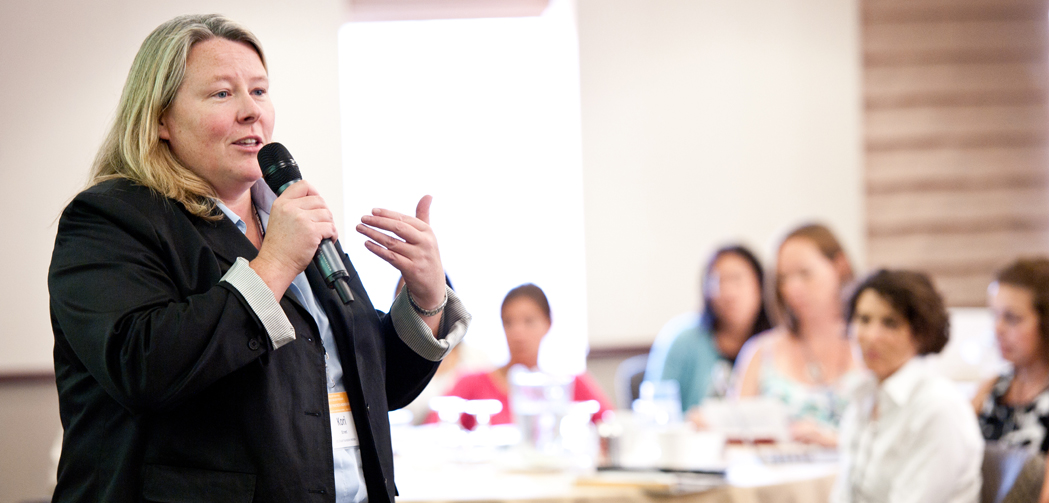Kori Street, Director of Education, and Professor Douglas Becker Lead Talk About Preventing Atrocities

Who can stop atrocities perpetrated against innocent populations? How do they go about it? When should they?
Easy questions to ask, perhaps, but the answers can be complicated and wrought with moral choices. But two experts tackled the issue in an insightful discussion Oct. 11 at USC.
Leading the talk were Dr. Kori Street, director of education at USC Shoah Foundation - The Institute for Visual History and Education, and Douglas Becker, an assistant professor at the USC School of International Relations.
The discussion, which drew about 25 students, was sponsored by the SFI Student Association and STAND - Conflict Free Campus Initiative.
Street said that focusing on the big picture can cause people to become overwhelmed. Instead, she said people can fight mass killing by making the right choices. She noted victims of the Holocaust saw their own friends turn against them as their conditions became more and more dire. Those friends made the wrong kinds of choices.
“What we try to do with students is to make positive choices to combat prejudice, bigotry and the suffering it causes,” Street said.
She also noted that ending genocide can be tackled by individuals simply by behaving correctly.
“What we’re trying to do is have students become responsible participants in a civil society. You participate, you’re respectful, you ask questions, you vote, you join movements. And you’re also OK with multiple perspectives.”
She has seen her work bringing some of USC Shoah Foundation’s testimonies into classrooms make real changes in the way young people look at the world.
Becker began the talk by saying outside intervention might not be as simple as it seems. Who are perpetrating the atrocities? What if citizens of other countries don’t want aide?
“States have the right to govern its territory without international interference,” he said. “If their borders are inviolable, it’s generally viewed positively because ... other states can’t invade those borders. It makes state-to-state war a lot less likely.”
But what if a state can’t protect its citizens? Or what if the state is perpetuating the atrocities, in places such as the Congo or Darfur?
“If the state is not providing security, if it’s not upholding its end of the social contract, can international actors make that determination?” he asked.
Aren’t there notions of right and wrong that extend beyond borders? That’s when terms like “global citizenship” and “crimes against humanity” can come into play.
But if such crimes are being committed, who is able to respond? Only a few countries, including the United States, even have the ability to intervene across the globe.
And states can intervene in the right place for the wrong reasons, which can create mistrust and skepticism about motives in future events..
Sates can also invert a sense of righteousness by first finding a reason for intervention and then finding a handy excuse for it.
“They ask if it’s in their interest and then say it’s a genocide to justify it,” Becker said.